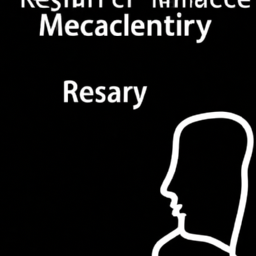In the era of AI-driven talent intelligence, legal professionals are taking a central role. The term “legal professionals” refers to lawyers, corporate legal advisors, paralegals, and legal operations professionals. These individuals are using their expertise to help organizations navigate the complex, ever-changing legal landscape.
One way that legal professionals are supercharging AI-powered talent intelligence is through LLMs, or “Legal Master’s Degrees.” LLMs are post-graduate degrees that provide specialized training in a particular area of law, such as international law, corporate law, or intellectual property law. LLMs offer students the opportunity to develop a deep and thorough understanding of the law, as well as gain hands-on experience in legal research and analysis. Because of this, LLMs are becoming increasingly popular among legal professionals.
What sets LLMs apart from other legal degrees is their focus on using technology to expedite and simplify legal processes. LLMs provide students with the skills to use AI-powered tools and algorithms to identify trends, uncover insights, and make data-driven decisions. As a result, organizations that employ LLM holders can leverage their expertise to gain the upper hand in legal operations.
LLMs are also preparing legal professionals for the future of legal work. With the rise of AI, legal professionals must be able to adapt to ever-evolving legal requirements. By equipping themselves with the latest technologies and techniques, LLM holders can help organizations stay ahead of the curve.
The benefits of having LLM holders in an organization are clear. Not only do they bring expertise in a particular area of law, but they also provide the opportunity to use AI-powered intelligence to gain a competitive advantage. As legal professionals become more tech-savvy, they are becoming an increasingly valuable asset to any organization.
So, how can organizations ensure they have the right legal professionals on their team? First, it’s important to understand the expertise that an LLM holder brings to the table. Organizations should look for LLMs with backgrounds in areas such as international law, corporate law, and intellectual property law. Additionally, they should also consider candidates with experience in using AI-powered tools and algorithms to identify trends and insights.
Second, organizations should look for LLMs who are comfortable with technology and open to learning new techniques. In today’s legal landscape, it’s important to have legal professionals who are not only knowledgeable but also willing to embrace new technologies and methods.
Finally, organizations should also look for LLMs who understand the importance of collaboration. In the era of AI-driven talent intelligence, legal professionals must be able to work with colleagues from different departments and roles. By having an LLM with strong interpersonal skills and a willingness to collaborate, organizations can ensure they are getting the most out of their legal professionals.
In conclusion, LLMs are supercharging AI-powered talent intelligence by providing organizations with an invaluable asset: legal professionals with expertise in a particular area of law, comfort with technology, and the ability to collaborate. By understanding the value these individuals bring to the table, organizations can ensure they are leveraging the full potential of their legal team.



